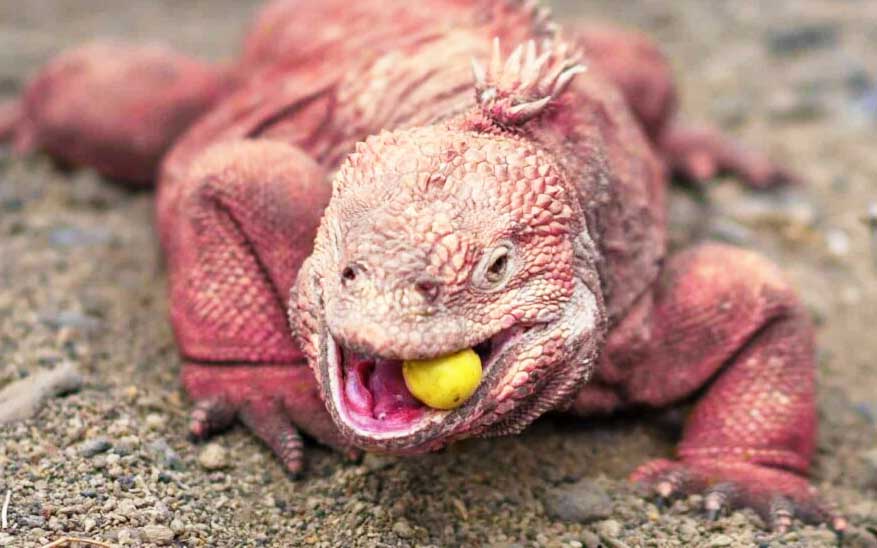English Español Français العربية
For more than a decade, scientists like Luis Ortiz-Catedral have been working to protect the Galápagos pink land iguana (Conolophus marthae). The species faces a range of threats including feral cats and rats, which prey on eggs and young reptiles. Their scientists' work, however, came to an halt in April when the COVID-19 lockdown in Ecuador went into effect.
“The travel restrictions and physical distancing measures meant that critical predator control work could not be completed as per calendar activities planned months ago,” Mr. Ortiz-Catedral said. “It may resume in the coming months, but it is unlikely to have the same effect after a multi-month gap.”
The uncertain future of the pink land iguana is just one of the many alarming stories of the pandemic's impact uncovered by a survey conducted by Mohamed bin Zayed Species Conservation Fund (MBZ Fund), where Razan Al Mubarak serves as Founding Managing Director.
In an op-ed published in Sustainability Times, Ms. Al Mubarak looks at how the pandemic has impacted the conservation sector and proposes a plan of action for ensuring a sustainable recovery.
Read Razan Al Mubarak's op-ed “Covid-19 has battered conservation work, but we can still succeed” in Sustainability Times.
